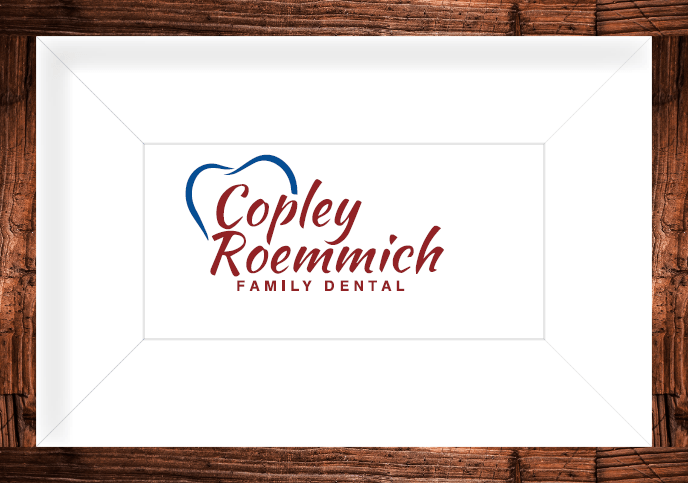Supporting copy for the Request Service
call out button.
Q & A
Serving Central Iowa and the Greater Des Moines Area | Located in Des Moines, IA
515-282-1359
515-282-1359
Serving Central Iowa and the Greater Des Moines Area | Located in Des Moines, IA
Let Us Answer All Your Questions
If you have questions regarding the dental care services provided at Copley Roemmich Family Dental, we're happy to answer any and all of your questions. If you don't find an answer to your question here, please feel free to contact us
and ask.
Frequently Asked Questions
Q: What should I expect at my first dental visit?
Ans: First, we discuss with you your long-term dental goals for your dental health…what concerns you have had in the past…and what your concerns you have now. For many of our patients their dental health is excellent and they have no concerns. For other patients, their dental health concerns range from cavities to esthetic considerations.
We will also do a complete exam and take any necessary X-rays and work with you on a treatment plan.
Dr. Copley and Dr. Roemmich are firm believers in prevention being your best defense! Our front office staff will be happy to schedule your appointments and keep you on your needed return visits.
Q: How does a sealant help prevent tooth decay?
Ans. A sealant is a plastic material that is usually applied to the chewing surfaces of the back teeth. This plastic resin bonds into the depressions and grooves (pits and fissures) of the chewing surfaces of back teeth. The sealant acts as a barrier, protecting enamel from plaque and acids.
Thorough brushing and flossing help remove food particles and plaque from smooth surfaces of teeth, but toothbrush bristles cannot reach all the way into the depressions and grooves to extract food and plaque. Sealants protect these vulnerable areas by “sealing out” plaque and bacteria.
Q: Are amalgam (silver) fillings safe?
Ans: Dental amalgam has an established record of safety and effectiveness. Amalgam has been used to restore the teeth of more than 100 million Americans. However, the fact that its formulation includes mercury content has raised safety concerns in the minds of some. Small amounts of mercury vapor can be released from amalgam during placement, mastication (chewing) and brushing. The safety of dental amalgam has been studied and reviewed extensively and no correlation has been found between the small amounts of mercury released from amalgam restorations and any adverse health affect.
– Source; ADA website
Q: Does Copley Roemmich Family Dental do whitening?
Ans. Yes! Our office offers at home whitening products. At your visit you can discuss with either one of the doctors or your dental hygienist as to which option would be best for you.
Q: Why would I need to take an antibiotic before a dental appointment?
Ans. Before some dental treatments, patients who have certain heart conditions and those with artificial joints may need to take antibiotics. These patients may be at risk of developing an infection in the heart or at the site of the artificial joint. Antibiotics will reduce the risk.
Q: What is the best way to get kids to brush?
Ans. Make it fun! Here are some hints to help you out.
- Make up a song to brush to.
- Play some music and brush to the rhythm!
- Use cute brushes.
- Count aloud as you brush – “Tooth number one is all clean! Tooth number two is all clean!” It is entertain-training and a great way to practice counting.
- Bring a friend. At bedtime, invite your child’s favorite stuffed animal into the bathroom to watch them brush.
Q: Why should I floss?
Ans: Brushing your teeth gets rid of some of the bacteria in your mouth. Flossing gets rid of the bacteria your toothbrush can’t get to. Brushing without flossing is like washing only half of your face.
If you do not floss, you allow plaque to remain between your teeth. Eventually it hardens into tartar.
Q: I have a full denture. Is it necessary for me to still see my dentist?
Ans: Visits to the dentist include more than just “checking teeth”. While those patients who wear dentures no longer have to worry about dental decay, they may have concerns with ill-fitting dentures or mouth sores to name a few. Annual visits to the dentist are recommended. During these visits an oral cancer screening exam will be performed as well as an evaluation of the fit or need for replacement of the existing dentures.
Q: Why do I need dental x-rays?
Ans: Many diseases of the teeth and surrounding tissues cannot be seen when your dentist examines your mouth. An x-ray examination may reveal:
- Small areas of decay between the teeth or below existing restorations (fillings)
- Infections in the bone
- Periodontal (gum) disease
- Abscesses or cysts
- Developmental abnormalities
- Some types of tumors
Finding and treating dental problems at an early stage can save time, money and often unnecessary discomfort.
Q: When Should Your Child First Visit the Dentist?
The American Academy of Pediatric Dentistry recommends that a child’s first dental visit should occur when their first tooth erupts or by his/her first birthday. This visit will enable Dr. Copley or Dr. Roemmich to meet your child and to discuss proper oral hygiene, diet, thumb/pacifier habits, tooth eruption, and fluoride. Many dental conditions can be avoided or reduced with early education and guidance.
Call us at
515-282-1359 for your appointment today!
“Copley Roemmich Family Dental is awesome and has the best dental hygienists! I’ve been seeing Dr. Copley for years.” – Joe
Call Us Now
Copley Roemmich Family Dental
609 E. Euclid Avenue
Des Moines, IA 50313
515-282-1359
Fax Number: 515-282-4269
Business Hours
- Mon - Wed
- -
- Thursday
- -
- Friday
- Appointment Only
- Sat - Sun
- Closed
Privacy Policy
| Do Not Share My Information
| Conditions of Use
| Notice and Take Down Policy
| Website Accessibility Policy
© 2024
The content on this website is owned by us and our licensors. Do not copy any content (including images) without our consent.



